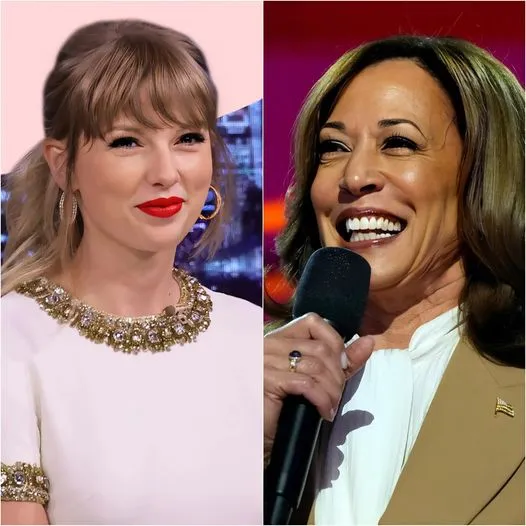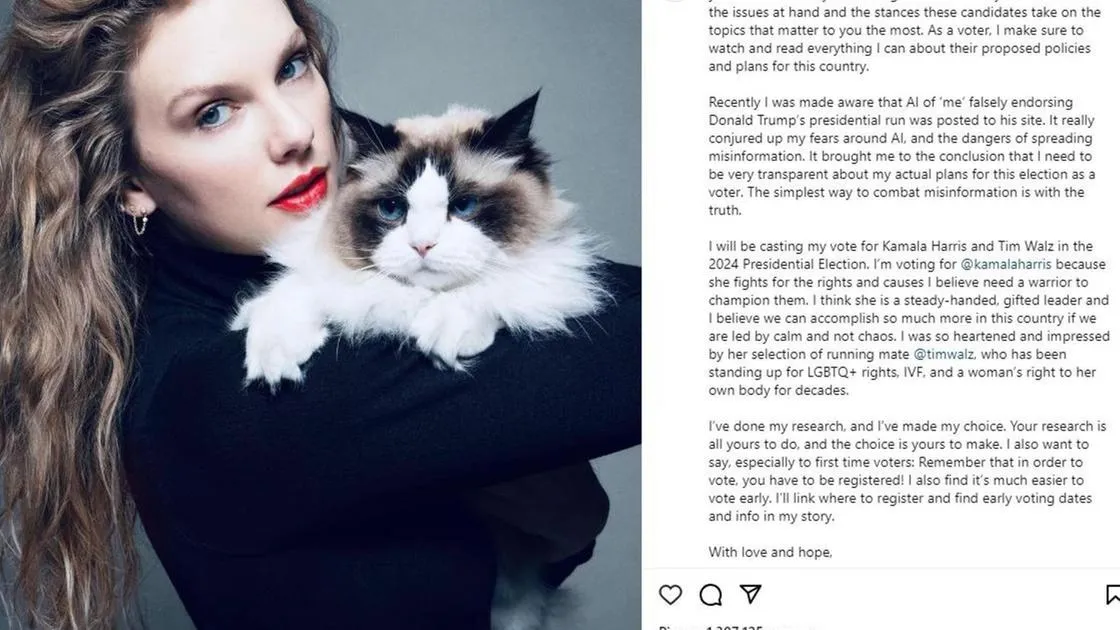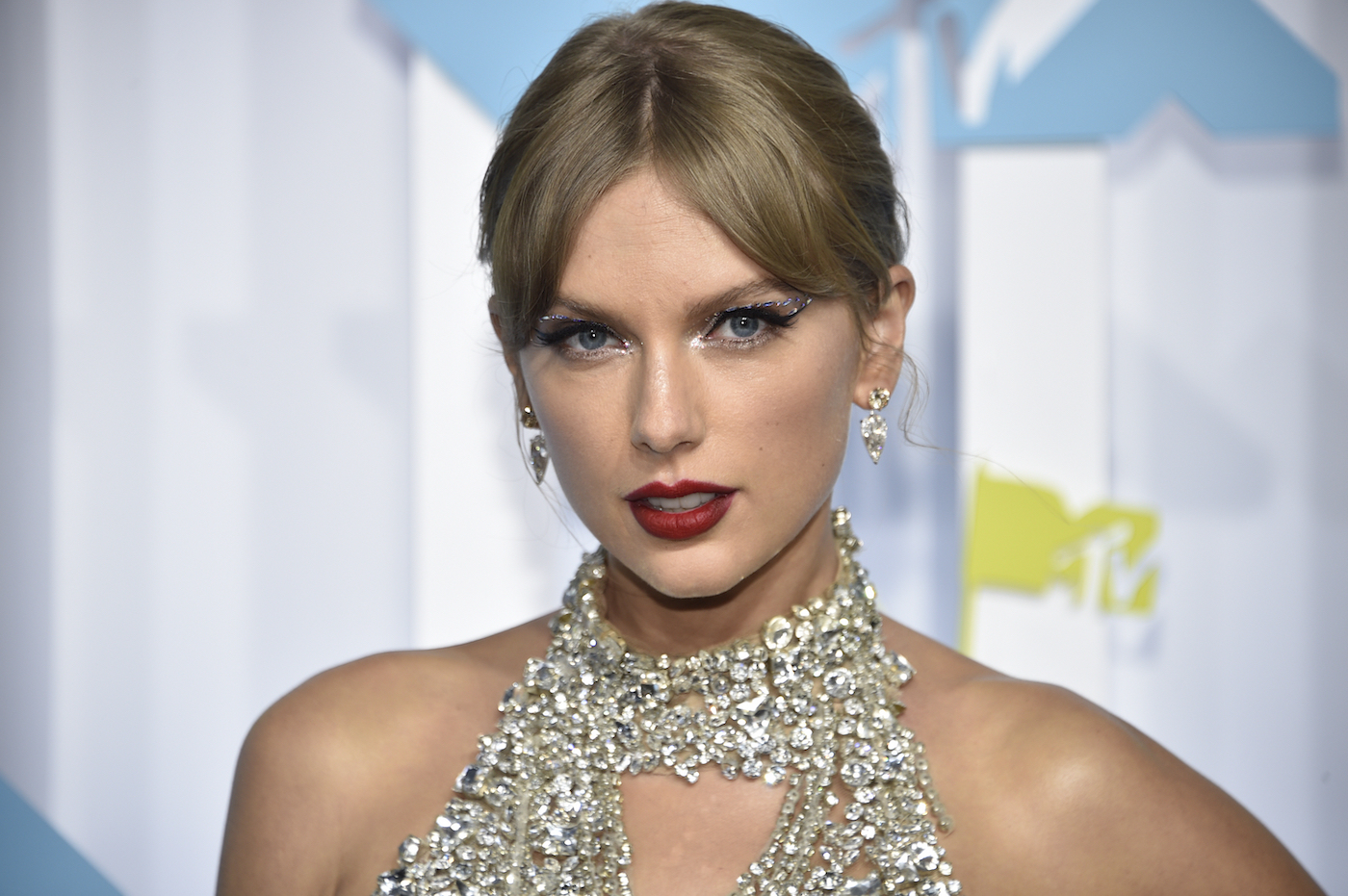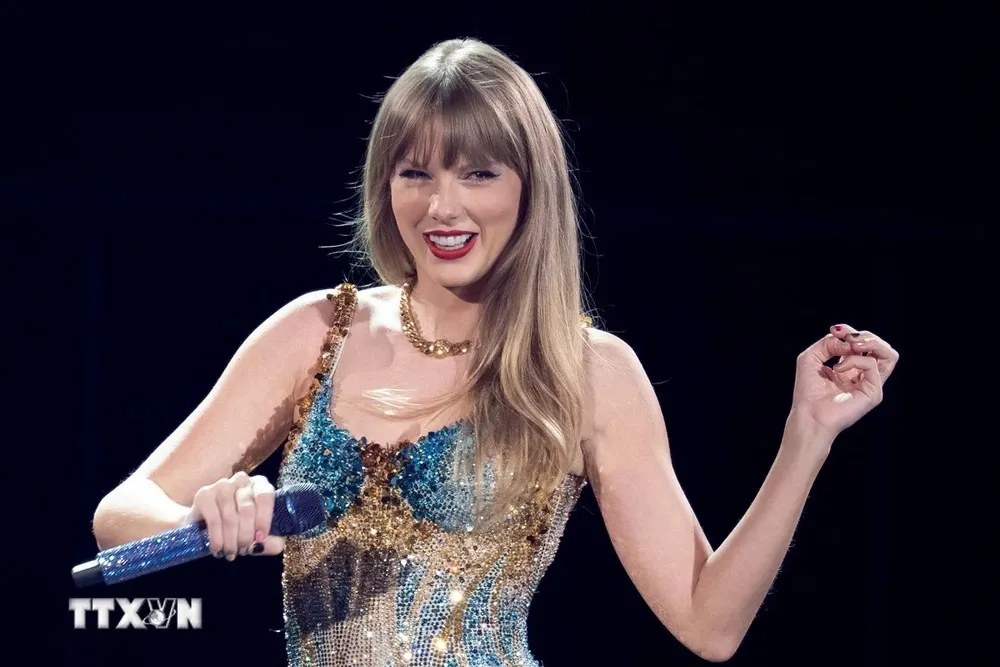In a surprising twist in the world of politics and celebrity endorsements, pop superstar Taylor Swift has expressed regret over her public endorsement of politicians Kamala Harris and Tim Walz. Known for her strong voice on social issues, Swift’s recent statements have left many of her fans and followers both stunned and questioning her previous political decisions. In a candid interview, Swift confessed, “I wish I could take it back,” when discussing her past support for Harris and Walz, sparking widespread conversation about the influence of celebrities in politics and the consequences of such endorsements.

Taylor Swift, one of the biggest pop stars of this generation, has long been known for keeping her political opinions private. However, in recent years, she has become more vocal about her stance on social issues, ranging from LGBTQ+ rights to women’s equality and racial justice. In 2018, Swift made headlines when she broke her political silence by endorsing Democratic candidates in Tennessee, a pivotal moment for the singer, who had previously avoided discussing politics in public.
Swift’s decision to endorse Kamala Harris during her Vice Presidential run in 2020, alongside her vocal support for Minnesota Governor Tim Walz, was seen as a continuation of her growing political activism. Many applauded her for using her platform to advocate for causes she believed in, while others, especially her conservative-leaning fans, were less than thrilled.
Celebrity endorsements in politics are nothing new. Over the decades, many high-profile individuals, including musicians, actors, and athletes, have publicly supported politicians or political movements. The rationale behind such endorsements is often simple: celebrities have massive platforms, millions of followers, and the ability to sway public opinion.
Taylor Swift’s endorsements were no different. Her support for Harris and Walz was seen as a powerful tool for mobilizing young voters, particularly millennials and Gen Z, who have been key demographics in recent elections. Swift’s social media platforms, which boast over 400 million followers, were flooded with political posts leading up to the 2020 elections, encouraging her fans to vote and take an active role in shaping the future of the country.
In her recent interview, Swift revealed that her regrets stem from several factors. One major reason is her growing discomfort with the current state of political affairs and the actions taken by Harris and Walz since being elected to office. Swift, who has always championed equality and justice, noted that she felt disconnected from the political decisions made by the very candidates she once supported.

“I had high hopes for the changes they promised,” Swift admitted. “But looking back, I feel disillusioned by some of the decisions and policies that have been put in place. I wish I could take it back and reconsider my choices.”
The disillusionment Swift refers to may resonate with many voters who feel let down by politicians once they are in office. It’s not uncommon for elected officials to make promises during campaigns and fall short in delivering them once they assume power. For Swift, endorsing Harris and Walz was a decision made with optimism, but the reality of political leadership has proven more complex than expected.
As soon as Swift’s comments were made public, the response from her fanbase and political commentators was swift and varied. Some fans expressed empathy for the pop star, acknowledging that political regret is something many voters experience. “I can totally understand where Taylor is coming from,” said one fan on social media. “Politics is messy, and it’s hard to predict how things will turn out.”
Others, however, were less forgiving, with some critics accusing Swift of being inconsistent and fickle in her political views. Conservative commentators were quick to pounce on her regret, pointing out that celebrity endorsements often lack the depth and understanding needed in political decision-making. “This is exactly why celebrities should stick to entertaining and leave politics to the experts,” one political analyst remarked. “Taylor Swift has no business endorsing politicians if she’s going to change her mind a year later.”
Meanwhile, supporters of Harris and Walz were also vocal in their disappointment with Swift’s remarks. Many defended the politicians, pointing out that they have been navigating unprecedented challenges during their time in office, including the ongoing pandemic, economic crises, and widespread social unrest. “It’s easy to criticize when you’re not the one in the driver’s seat,” one Harris supporter tweeted.

Swift’s regret over her political endorsements brings up an important conversation about the role of celebrities in politics. While stars like Swift undoubtedly have the right to express their opinions, there is a growing debate over whether they should wield their influence in the political arena. For many, celebrities represent an idealized version of leadership, but they are not necessarily equipped to understand the full complexities of governance and policy-making.
Political endorsements from celebrities can sway elections, but they also come with risks. When a celebrity publicly supports a candidate, they are aligning themselves with that individual’s entire political platform. If the politician fails to live up to expectations, the celebrity’s reputation can be damaged, as is the case with Swift’s current situation.
Taylor Swift’s recent statements may mark a turning point in her approach to political involvement. While she remains a vocal advocate for social justice, her regrets over endorsing Harris and Walz suggest that she may take a more cautious stance in the future. “I’m learning as I go,” Swift said in her interview. “I’ll continue to fight for what I believe in, but I also realize that I need to be more thoughtful about how I use my voice in the political space.”
As for her fans, it’s likely that many will continue to support Swift, regardless of her political regrets. Her openness and willingness to admit mistakes have endeared her to millions, and her ability to navigate the often-turbulent waters of fame with humility is one of the reasons she remains such a beloved figure.

Ultimately, Taylor Swift’s regret over endorsing Harris and Walz serves as a reminder that political decisions are complex and that even the most well-intentioned endorsements can have unforeseen consequences. Whether this experience will shape her future activism remains to be seen, but one thing is clear: Taylor Swift’s voice will continue to be a powerful force, both in music and beyond.